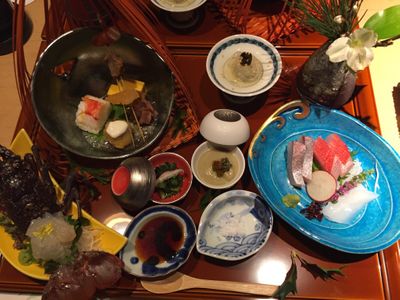Exercises in understanding spoken Japanese and participating in conversation in a variety of situations. Exercises in expressing opinions about chosen subjects in both speech and writing. Grammar and vocabulary exercises. Active learning of about 100 additional kanji characters Overview of the structure of technical terms. Translation exercises on a variety of texts. Written exercises, e.g. simple reports dealing with subject areas familiar to the student. Facts about Japan, Japanese culture, society and technical development.
LS1486 Japanese B1 for Engineers 7.5 credits

We will further develop language proficiency in Japanese to be able to read and write scientific texts. Furthermore, we will also learn the communication tools such as respect and humble expressions.
Information per course offering
Course offerings are missing for current or upcoming semesters.
Course syllabus as PDF
Please note: all information from the Course syllabus is available on this page in an accessible format.
Course syllabus LS1486 (Autumn 2019–)Content and learning outcomes
Course contents
Intended learning outcomes
The intended learning outcomes for the course refer mainly to the level B1 according to CEFR, the Common European Framework of Reference for Languages, and aim to strengthen the student's global competence.
On completion of the course, the student should, in addition to what is specified in courses at lower levels, be able to:
• identify the main contents in a shorter oral presentation on familiar topics
• express his/her own opinions in coherent text and be able to write texts and give simple presentations concerning daily life, work-related issues or technology
• understand clear messages and pieces of information and participate in conversations in Japanese in everyday situations
• in Swedish identify and account for facts from authentic, technical texts
• translate technical Japanese texts within familiar subject areas by means of web-based translation programs
• search for personally relevant information in Japanese via the Internet
Literature and preparations
Specific prerequisites
Basic university qualification. Completion and pass of Japanese A2 for Engineers, equivalent older course, or the equivalent knowledge demonstrated in a compulsory placement test taken before applying for the course.
Literature
Course literature will be announced before the start of the course.
Recommended reference literature and electronic resources will be listed in the course information or in a similar way.
Examination and completion
Grading scale
Examination
- KONA - Assessment, 1.5 credits, grading scale: P, F
- LEXA - Continuous Assessment, 6.0 credits, grading scale: P, F
Based on recommendation from KTH’s coordinator for disabilities, the examiner will decide how to adapt an examination for students with documented disability.
The examiner may apply another examination format when re-examining individual students.
If the course is discontinued, students may request to be examined during the following two academic years.
The examiner determines, in consultation with the KTH coordinator for support to students with disabilities (Funka), possible customized examination for students with any documented and permanent functional disability. The examiner may offer a different type of exam for re-examination of individual students.
Other requirements for final grade
All examination parts passed
75% attendance
Examiner
Ethical approach
- All members of a group are responsible for the group's work.
- In any assessment, every student shall honestly disclose any help received and sources used.
- In an oral assessment, every student shall be able to present and answer questions about the entire assignment and solution.